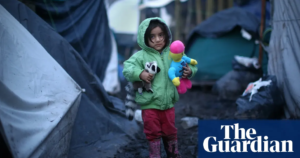
Claim refuge
To Canada
In Canada
Claim
Outside Canada
Claims
Border Crossing
Claims
Applying for refugee status is a very complicated and important process. To make sure that your application is properly prepared and handled, you should contact an immigration lawyer/consultant.
Canada's commitment to helping refugees
Canada has a long-standing reputation as a welcoming and hospitable nation, and this extends to its approach to refugees. The country has a proud history of providing a safe haven for people fleeing persecution, war, and conflict, and has taken in tens of thousands of refugees over the years.
One of the ways in which Canada welcomes refugees is through its resettlement program. This program is run by the government in partnership with various organizations and communities across the country. It provides refugees with support in finding housing, accessing health care and education, and getting settled in their new communities.
The program also offers financial assistance to refugees to help them with their initial needs, such as clothing and household items. This funding is provided through the Government-Assisted Refugee Program, which covers the costs of travel, orientation, and support services for refugees.
Canada’s private sponsorship program is another way in which the country welcomes refugees. Under this program, private individuals and groups can sponsor refugees to come to Canada. This can include helping with housing, transportation, and other practical needs, as well as providing emotional and social support.
Canada’s approach to refugees is rooted in its commitment to human rights and social justice. The country recognizes that refugees are often among the most vulnerable and marginalized people in the world and that they need protection and support in order to rebuild their lives.
To this end, Canada has also implemented various policies and programs to help refugees integrate into Canadian society. For example, the government provides language training and job readiness programs to help refugees find employment and become self-sufficient. There are also initiatives to promote community engagement and cultural exchange, which help refugees connect with their new communities and build relationships with Canadians.
Inspirational refugee story
People come to Canada for many reasons. No matter where they’re from or why they’re here, a warm Canadian welcome can make a difference.
How to claim refugee status Canada
Claim refugee inside Canada
At a port of entry
Individuals seeking refuge in Canada have the right to apply for refugee status at any Canadian port of entry. The immigration officer receiving the claim will take two actions. Firstly, they will issue a removal order requiring the claimant to leave Canada, but this order will be suspended as long as the refugee claim is active. It is important to note that the removal order will cancel any existing visa that the claimant may have.
Secondly, the officer will evaluate whether the claim is eligible to be referred to the Immigration and Refugee Board of Canada (IRB) for a hearing. A claim may be deemed ineligible if the individual has previously filed a refugee claim in Canada, has committed or been convicted of a serious crime, or if they have entered Canada via the United States. It is important to note that this eligibility evaluation does not determine the merit of the refugee claim or whether the officer believes the claimant requires protection.
If the claimant is granted admission to Canada, the officer will assist in completing the necessary immigration documents during the interview. It is crucial for the claimant to mention all immediate family members, including step-children, to ensure that they can be included in the permanent residence application if the refugee claim is accepted. Finally, the officer will provide the Basis of Claim form, which must be completed and submitted to the IRB within 15 days.
At an IRCC (immigration and refugee) Office
If an individual is already in Canada, they can make a refugee claim at a designated IRCC (Immigration, Refugees and Citizenship Canada) office. Before making a claim, it is necessary to obtain an application package from the IRCC website. The application should include details about the individual’s background, family, and reasons for seeking refugee protection. It is crucial to mention all immediate family members, including step-children, to ensure they can be included on the permanent residence application if the refugee claim is accepted.
Similar to refugee claims made at the port of entry, the Officer in charge of the claim will take two actions. Firstly, they will issue a removal order requiring the individual to leave Canada, but this order will be suspended as long as the refugee claim is active. It is important to note that the removal order will cancel any existing visa the individual may hold. Secondly, the Officer will evaluate the eligibility of the claim to be referred to the IRB for a hearing.
The IRB is an independent administrative tribunal responsible for making decisions on immigration and refugee matters.
Immigration and Refugee Board hearing
If an individual’s refugee claim is eligible for a hearing, they will need to attend the Refugee Protection Division (RPD) of the IRB. The individual will receive a Notice to Appear for a Hearing, which will provide details about the date, time, and location of the hearing. Although most hearings take place in-person, videoconferences may be held under specific circumstances. Most refugee claims are heard within 60 days of being referred to the IRB by IRCC, but some may be heard sooner.
At the hearing, a single IRB member will serve as the decision-maker. IRB members are generally knowledgeable about refugee applications and the living conditions in the country from which the individual has fled persecution. However, the individual must submit all evidence they wish to rely on, including personal evidence, news reports, and medical documentation, to the IRB 10 days before the hearing.
The individual also has the right to have a lawyer or other representative present at the hearing. An immigration lawyer can provide guidance on the hearing process and help the individual properly prepare their case. The IRB member and the individual’s lawyer will both ask questions about the individual’s application and why they are unable to return to their home country. Although each application for refugee status is evaluated separately, the individual and their immediate family members will have their separate claims heard together in one hearing.
Hearings are conducted in either English or French, and the individual has the right to an interpreter at the hearing, at no cost. If the individual has any concerns about the interpreter’s performance, they should inform their lawyer. The individual may also bring witnesses to the hearing if they believe it will support their claim.
Having an immigration lawyer at the hearing can assist in presenting the case and can help with filing an appeal if the claim is rejected. While waiting for the hearing, the individual may remain in Canada and apply for a work permit. Once the refugee claim forms are submitted to the IRB, the individual can request an application for a work permit from IRCC.
Claim refugee outside Canada
Go to UNHCR
Claims for refugee status can be made while the applicant is outside of Canada, to a Canadian visa office, Embassy or High Commission. A Canadian visa officer then decides whether the person meets the requirements of Canada’s Refugee and Humanitarian Resettlement Program, and if the person will be admitted to Canada.
If you are outside Canada, you can claim refugee status in one of two refugee classes:
- Convention Refugee Abroad Class
- Country of Asylum Class
Asylum seekers outside of their country of origin can go to the United Nations High Commission for Refugees. They will give you an appointment. In some places, this appointment may take a year or more to be scheduled.
The UNHCR will interview you and decide if you are a Convention Refugee. They will give you a certificate. If you want to be resettled in Canada, you go to the Canadian Embassy, Consulate or High Commission.
You can qualify as a Convention Refugee if you are outside your home country, or the country where you normally live, and can’t return to that country because of a well-founded fear of persecution based on:
- race,
- religion,
- political opinion,
- nationality, or
- membership in a particular social group, such as women or people with a different sexual orientation.
You must also be:
- outside Canada, and want to come to Canada,
- referred by the United Nations High Commissioner for Refugees (UNHCR), another referral organization or a private sponsorship group, and
- selected as a government-assisted or privately sponsored refugee, or have the funds needed to support yourself and your dependents after you arrive in Canada.
Settlement programs
Many more people apply for resettlement each year than Canada accepts. If you are accepted for resettlement, it may take many years for this process. The time varies from region to region: 1-3 years in some places, 6-8+ years in others.
There are two ways to resettle to Canada as a refugee:
- Government Assisted Refugees (GAR) – GARs are selected by the Canadian government and they support the first year of settlement.
- Privately Sponsored Refugees (PSR) – Groups of Canadians can sponsor a refugee. Private sponsors support the first year of resettlement for PSRs.
If your claim is accepted
Following a refugee hearing, the IRB member will determine whether you are admissible to remain in Canada permanently or must leave because you are inadmissible. If the IRB accepts your claim for refugee status, you will be granted the status of a “protected person”. This means that you are permitted to stay in Canada and can apply to become a permanent resident. At the conclusion of the hearing, the member will announce their decision and provide the rationale for the decision. If this is not done at the hearing, you will receive a copy of the decision and the reasons via mail shortly after the hearing.
If your claim is rejected?
If your claim for refugee status is rejected and you are found to be inadmissible, it means you may not enter or stay in Canada. If you have exhausted all the appeal and review options for challenging your removal, your removal order will come into force allowing the Canada Border Services Agency to remove you from Canada.
If you are in Canada you have the right to apply for an appeal to the Refugee Appeal Division within 15 days of receiving your refugee refusal. RAD proceedings are complicated and you should speak to a lawyer before beginning the process.
Our Clients Says

I can’t thank the team at Jornada Immigration enough for all their help in making my dream of moving to Canada a reality. From the moment I first contacted them, they were responsive, knowledgeable, and always available to answer my questions. They walked me through every step of the process, from filling out paperwork to preparing for my interview, and made sure I was well-prepared every step of the way. Thanks to their expertise and guidance, I was able to successfully obtain my visa and start a new life in Canada. I highly recommend Jornada Immigration to anyone looking for trustworthy and reliable immigration services.
Amanda Seyfried

I had been struggling with my immigration application for Canada for months and was starting to lose hope. That’s when I found Jornada Immigration Services and I’m so glad I did. The team was incredibly knowledgeable and helpful, guiding me through every step of the process and answering all of my questions promptly and thoroughly. They were always available to offer advice and support when I needed it most. With their help, my application was finally approved and I’m now on my way to starting a new life in Canada. I cannot recommend Jornada Immigration Services enough – they truly go above and beyond to help their clients achieve their goals
Rami Salem

I had been trying to bring my family to Canada for years, but the process was so complicated and overwhelming that I didn’t know where to start. That’s when I found Jornada Immigration Services and everything changed. The team was incredibly knowledgeable about the family sponsorship process and they guided me through every step, from filling out forms to preparing for interviews. They were patient, compassionate, and always available to answer my questions and concerns. Thanks to their expertise and hard work, my family’s application was approved and they were finally able to join me in Canada. I cannot thank Jornada Immigration Services enough for their help and support – and they’re very affordable too.
Jamal Ouali
Ready to get started? Contact us!
Our team of experts is here to help and guide you through this complicated process.
